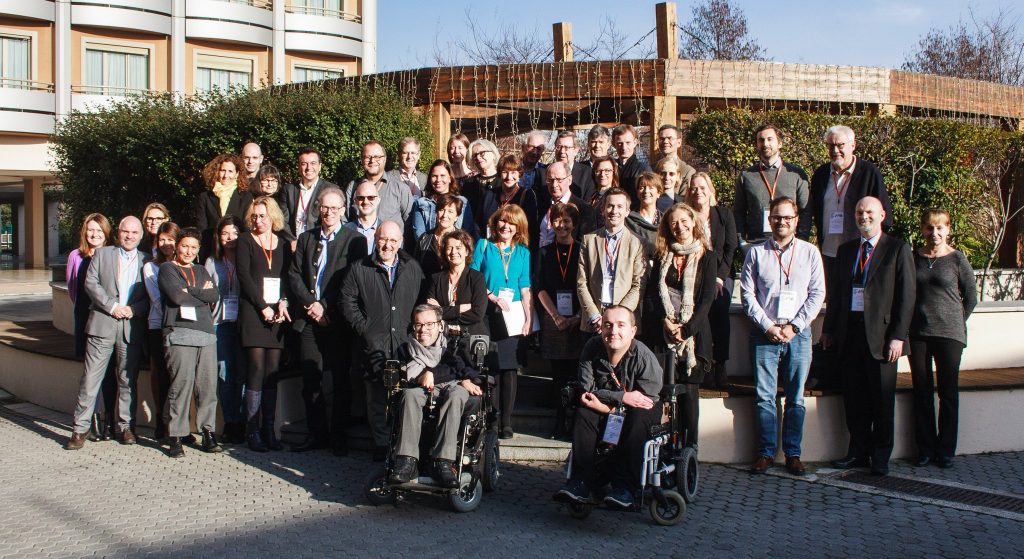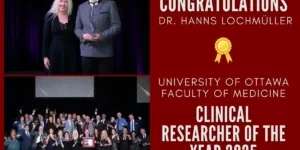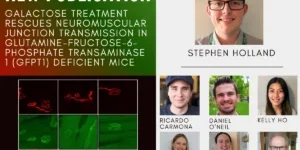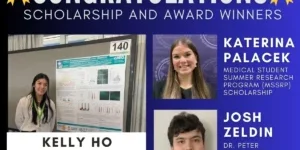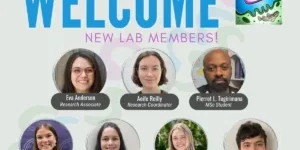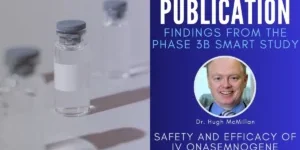New publication: “Be an ambassador for change that you would like to see”: a call to action to all stakeholders for co-creation in healthcare and medical research to improve quality of life of people with a neuromuscular disease
The 2018 ENMC workshop on shared decision-making has resulted in a second valuable publication on the importance of co-creation in healthcare and medical research. In this new article by Ambrosini et al, workshop participants report on their discussions and conclusions on how to make all stakeholders, particularly the patients themselves, equal partners in the decisions surrounding care and research. The workshop stressed the need for educational, structural and cultural changes in order to achieve the potential of this approach in the neuromuscular field. Many of the conclusions are extendable to other rare diseases. The workshop was convened on the occasion of the 25th anniversary of the European Neuromuscular Centre (ENMC), a European foundation of patient organisations for neuromuscular disease, whose mission is to promote research and improve quality of life of people with NMD.
Read the full open-access article online at the Orphanet Journal of Rare Diseases website
Ambrosini A, Quinlivan R, Sansone VA, Meijer I, Schrijvers G, Tibben A, Padberg G, de Wit M, Sterrenburg E, Mejat A, Breukel A, Rataj M, Lochmüller H, Willmann R, on behalf of the 235th ENMC workshop study group
“Be an ambassador for change that you would like to see”: a call to action to all stakeholders for co-creation in healthcare and medical research to improve quality of life of people with a neuromuscular disease
Orphanet Journal of Rare Diseases 2019 (14):126
https://doi.org/10.1186/s13023-019-1103-8
Abstract

Lead author Anna Ambrosini
Background
Patient and public involvement for co-creation is increasingly recognized as a valuable strategy to develop healthcare research targeting patients’ real needs. However, its practical implementation is not as advanced and unanimously accepted as it could be, due to cultural differences and complexities of managing healthcare programs and clinical studies, especially in the rare disease field.
Main body
The European Neuromuscular Centre, a European foundation of patient organizations, involved its key stakeholders in a special workshop to investigate the position of the neuromuscular patient community with respect to healthcare and medical research to identify and address gaps and bottlenecks. The workshop took place in Milan (Italy) on January 19–20, 2018, involving 45 participants who were mainly representatives of the patient community, but also included experts from clinical centers, industry and regulatory bodies. In order to provide practical examples and constructive suggestions, specific topics were identified upfront. The first set of issues concerned the quality of life at specific phases of a patient’s life, such as at the time of diagnosis or during pediatric to adult transition, and patient involvement in medical research on activities in daily living including patient reported outcome measures. The second set of issues concerned the involvement of patients in the management of clinical research tools, such as registries and biobanks, and their participation in study design or marketing authorization processes. Introductory presentations were followed by parallel working group sessions, to gain constructive contributions from all participants. The concept of shared decision making was used to ensure, in discussions, a partnership-based identification of the wishes and needs of all stakeholders involved, and the “ladder of participation” tool served as a model to evaluate the actual and the desired level of patients’ involvement in all topics addressed. A general consensus on the outcome of the meeting was collected during the final plenary session.
This paper reports the outcome of the workshop and the specific suggestions derived from the analysis of the first set of topics, related to quality of life. The outcomes of the second set of topics are reported elsewhere and are only briefly summarized herein for the sake of completeness.
Conclusions
The neuromuscular community proved to be very active and engaged at different levels in the healthcare initiatives of interest. The workshop participants critically discussed several topics, providing practical examples where different stakeholders could play a role in making a change and bridging gaps. Overall, they indicated the need for education of all stakeholders for better communication, where everyone should become an ambassador to promote real change. Support should also come from institutions and healthcare bodies both at structural and economic level.

